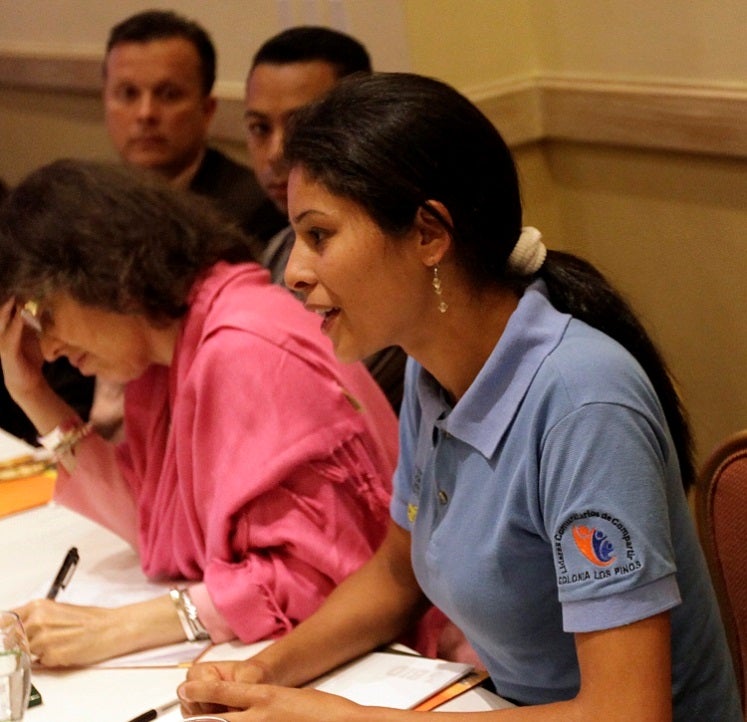Young People get a second chance
“I was into drugs, vices… All of it, I did. I was trapped in that world for 18 years and wasted my entire life. I lost my family, my job, my time. I had a second chance in 2009 when I spent nearly two years in rehab. Now, I want to become a role model for my family and my children. I am proud to belong to the Instituto Hondureño de Educación por Radio. It’s a privilege. God gave me this new opportunity and I will not let it go to waste.” This was the testimony of Ruben, who is now 37 years old and is participating in a flexible education program in Tegucigalpa.
And he is not alone. Drug use, gang involvement, pregnancy, poverty and limited access to education were some of the reasons cited by young people for dropping out of school at an IDB education workshop held in Honduras. While these reasons may not be surprising, for me, it was more impactful to hear it directly from them and to sense how school has impacted them. And, in these cases, how returning to school, in particular, a flexible education program, has changed their lives for the better.
[vsw id=”p3fduTNwxPA” source=”youtube” width=”425″ height=”344″ autoplay=”no”]
In Latin America, one of the major challenges for governments, organizations, civil society and the like is the percent of young people that drop out of school. The numbers are daunting. Approximately half of the students in Latin America and the Caribbean do not finish secondary school. Not having a diploma, or the necessary skills to enter the workplace, these young people face numerous obstacles to find a decent job. The unemployment rate of those between 15 and 24 years of age is about three times as high as the rate for adults.
While young people may leave formal schooling for many reasons, underlying factors can increase the likelihood of them doing so. These are: poverty, violence in the home or community, and unstable families to name a few. Living under such difficult conditions over an extended period of time, in particular if it occurs during pregnancy or in the early childhood years, creates an environment of chronic stress that can impact a child’s or young person’s ability to memorize, learn, and self-regulate his or her behavior in the long term.
While the young people who participated in the 2013 workshop left school for different reasons, they had one thing in common: they all found an alternative, a flexible education model that allowed them to pursue their secondary education. These education programs in Honduras, El Salvador, and Guatemala sometimes target rural populations; in other cases, they are offered more broadly. While in some programs the academic results remain poor, the message from these participating youth is that the characteristics of the model make it successful. These programs provide a flexible learning environment that may better accommodate student schedules; some offer vocational skills training and links to the job market; and most importantly, they consider the local context and reality of the students. The programs also place great importance on ensuring that the teachers are well qualified with a specialization in the curriculum areas taught.
For some of the youth, returning to school required overcoming difficult challenges and making hard choices at the beginning. For others, the same hardships continued to complicate their lives while enrolled in the program. Yet these young people began making more positive life choices to improve their living conditions. And, while from a socioeconomic perspective not much may seem to have changed, all of these young people believe that going back to school has changed their lives for the better. They feel better, have a higher self-esteem, and once they complete their school, more opportunities may open up for them, including in the job market as well as in furthering their education.
[vsw id=”ukN9tZCBcvQ” source=”youtube” width=”425″ height=”344″ autoplay=”no”]
Over the course of the next three months, we will publish several blog posts telling the story of some of these young people, illustrating different key issues that they raise. The posts will focus on the effects of the following topics on young people and their education: early pregnancies and early childhood development, family responsibilities, extreme poverty, gangs and high risk communities, and vocational education.



Leave a Reply